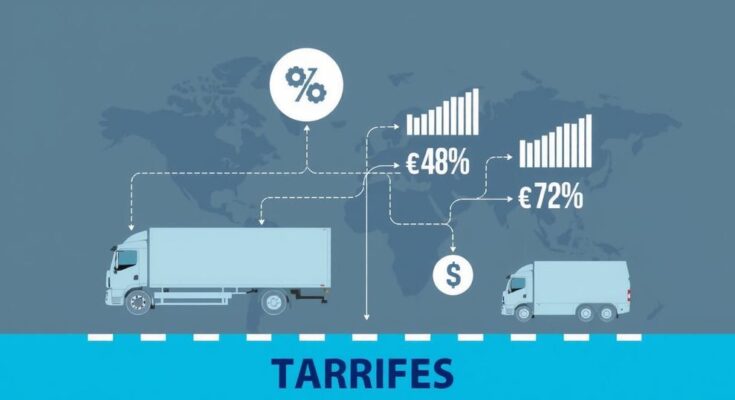In a recent analysis, economist Arthur Laffer has sounded an alarm over President Trump’s proposed 25% tariffs on auto imports, predicting they could push vehicle costsup by $4,711. Laffer argues that such tariffs threaten U.S. automakers’ competitiveness against foreign firms, asserting that adhering to the existing supply chain rules from the USMCA trade pact with Canada and Mexico would be more beneficial for the industry.
The White House has temporarily exempted auto and parts imports from these tariffs starting April 3, intending to devise a method to tax non-U.S. content in vehicles. Laffer warns that removing this exemption could devastate the auto industry, undermining the administration’s objectives to bolster U.S. manufacturing and economic stability. He believes that the proposed tariffs could shrink profit margins for manufacturers, resulting in diminished competitive edge against international rivals.
During a recent interview, Laffer acknowledged the stir his report created, clarifying it focuses solely on economic consequences and not on Trump’s negotiation prowess. He lauded the president’s understanding of trade intricacies but emphasised that this report should not be seen as a criticism of Trump’s strategies.
Laffer expressed confidence in Trump’s capabilities as a negotiator and outlined how tariffs could serve as a strategic tool, similar to those employed during his first term, ultimately aiming to lower trade barriers and enhance economic conditions. He highlighted the importance of the USMCA as a commendable milestone in Trump’s first term, facilitating economic growth and reinforcing the U.S. auto sector.
Without the USMCA exemption, the added vehicle cost could reach $4,711, drastically reduced to $2,765 if exemptions remain. Laffer is well-known for the Laffer Curve concept, illustrating how extremely high tax rates can deter revenue collection. Recognising Laffer’s contributions, Trump awarded him the Presidential Medal of Freedom in 2019, praising his role in driving significant economic reforms through individual freedom and ingenuity.
Although Trump believes the tariffs would encourage foreign and domestic manufacturers to expand production in the U.S., the forecasted economic impacts have unsettled both investors and consumers. He recently celebrated a $5.8 billion investment from Hyundai as proof of his successful strategy, insisting that concentrating production in the U.S. is crucial for efficient car manufacturing and cost management.
Economist Arthur Laffer warns that Trump’s proposed 25% tariffs on auto imports could raise vehicle costs by $4,711 and weaken U.S. automotive competitiveness. He advocates for maintaining the USMCA supply chain rules to better support the industry. While praising Trump’s negotiation skills, Laffer highlights the potential risks of these tariffs to the economy and the auto sector.
Arthur Laffer’s analysis critiques Trump’s proposed 25% auto tariffs, indicating potential vehicle cost increases and diminished competitiveness for U.S. automakers. He advocates for the benefits of maintaining USMCA exemptions and praises Trump’s negotiation skills. Despite warnings about economic repercussions, Trump maintains that tariffs could foster local production. The Laffer Curve remains influential in economic discussions surrounding tax policies and growth strategies.
Original Source: www.denverpost.com



